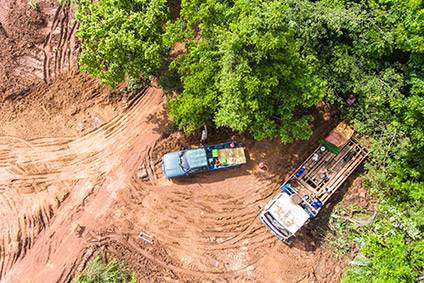
US agri-food giant Cargill has admitted that a goal to end deforestation by 2020 is unlikely to succeed.
The company has now pledged to do more to protect forests and native vegetation, especially in Brazil.

Discover B2B Marketing That Performs
Combine business intelligence and editorial excellence to reach engaged professionals across 36 leading media platforms.
This includes committing US$30m to “accelerate new ideas”.
The 2020 zero net deforestation pledge, set by global industry body the Consumer Goods Forum and agreed in 2010, was signed by Cargill and large consumer-facing businesses including Unilever and Tesco.
But Cargill CEO Dave MacLennan, writing on the website of global deforestation organisation Tropical Forest Alliance 2020, said: “Despite our collective efforts, industry is poised to fall short of a 2020 goal to eliminate deforestation in key supply chains, including beef, soy and palm oil. That is hard for me to admit – but it is not a reason to stop taking critical action.”
He was writing following the release of data showing deforestation of the Amazon rainforest in Brazil, a top supplier of soybeans to Cargill, sped up in May to the fastest rate in a decade.

US Tariffs are shifting - will you react or anticipate?
Don’t let policy changes catch you off guard. Stay proactive with real-time data and expert analysis.
By GlobalDataAs a series of reports by the UK TV news outlet Channel 4 claimed this week, this is partly because Brazilian president Jair Bolsonaro’s government has eased environmental protections in the country which has encouraged illegal logging in the Amazon rainforest.
But in his call to arms, MacLennan said that companies themselves need to step up to the plate.
“Our company, industry and organisations around the world need to do more. We need to move faster. And we need to act together,” he said.
“We must end deforestation in a way that protects forests and native vegetation while simultaneously allowing farmers and communities to prosper. Perhaps nowhere is this currently more critical than in the Cerrado region of Brazil.”
He added: “Balancing the needs of forests, farmers and communities is a challenge that cannot be solved by any one company alone. Cargill has been focused on creating sustainable supply chains for many years. Our experience has shown us that we are only successful when everyone involved in the supply chain works together.
“We’ve also learned that solutions are seldom simple or universal. The changes we’ve implemented in our palm supply chain, for example, will not work in the soy supply chain, where the industry is more fragmented and the farming economics are drastically different.”
Pledging the additional US$30m to help the deforestation fight, MacLennan has called on its competitors and customers to join its campaign.
“We will convene the best and brightest minds to identify innovative solutions to end deforestation, starting with the soy industry in Brazil. It will take collective action to solve this problem, not merely shift it to another company’s supply chain,” he said.
“Cargill is a large company, and on our own, we can drive change. Working with others, we can transform our industry. And in doing so, we can create a socially responsible, environmentally sound and economically viable supply chain that works for everyone.”



